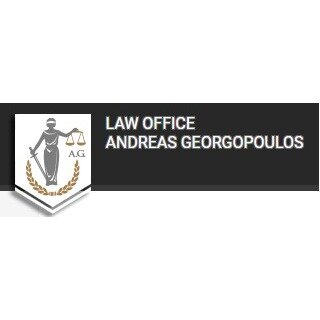Best International Trade Law Lawyers in Greece
Share your needs with us, get contacted by law firms.
Free. Takes 2 min.
Or refine your search by selecting a city:
List of the best lawyers in Greece
About International Trade Law in Greece
International Trade Law in Greece encompasses a wide range of treaties, regulations, and practices that govern trade and commerce between Greece and other countries. As a member of the European Union, Greece adheres to EU trade policies, which influence its national regulations and practices. The framework of international trade law covers various aspects such as import and export controls, tariffs, trade agreements, and dispute resolutions. Practitioners of international trade law in Greece often navigate both domestic laws and international legal arrangements to ensure compliance and resolve conflicts.
Why You May Need a Lawyer
Engaging with international trade can be complex, and individuals or companies may require legal assistance in several scenarios, such as:
- Negotiating and drafting international sales contracts and trade agreements.
- Ensuring compliance with import and export regulations.
- Managing disputes arising from trade agreements, including arbitration or litigation.
- Understanding and applying international trade sanctions or embargoes.
- Navigating anti-dumping, countervailing, and safeguard measures.
- Seeking guidance on customs classification and valuation issues.
Local Laws Overview
Greece's laws in the sphere of international trade are heavily influenced by its membership in the European Union. Key aspects include:
- The Customs Code of the EU, which sets uniform customs rules across member states.
- The Trade Policy of the EU, with regulations pertaining to tariffs, trade barriers, and bilateral agreements with non-EU countries.
- Greek national legislation that complements EU law to regulate specific trade sectors and compliance issues unique to Greece.
- Regulations concerning free trade zones and special economic zones within Greece.
- Greek commercial and corporate law, affecting how businesses can engage in international trade.
Frequently Asked Questions
1. What is the role of the EU in Greek international trade law?
The EU plays a significant role as Greek trade laws are largely aligned with EU regulations governing customs, tariffs, and international trade agreements.
2. Do I need a specific license to import goods into Greece?
It depends on the types of goods. While many products can be freely traded, certain goods may require special permits or licenses.
3. How can a lawyer assist with trade disputes?
A lawyer can provide representation in arbitration or court, advise on the best strategy, and negotiate settlements on behalf of their client.
4. What are the main documents required for international trade in Greece?
Common documents include commercial invoices, bills of lading, certificates of origin, and import/export licenses where applicable.
5. How do tariffs affect international trade with Greece?
Tariffs, determined largely by EU agreements, impact the cost of importing and exporting goods to and from Greece and can influence business competitiveness.
6. Can Greek companies benefit from international trade agreements?
Yes, Greek companies benefit from broader EU trade agreements with countries worldwide, which can reduce tariffs and provide market access advantages.
7. What is the process for resolving trade disputes in Greece?
Disputes can be resolved through negotiation, mediation, arbitration, or litigation in court, depending on the contract terms and parties' preferences.
8. Are there anti-dumping laws in Greece?
Yes, Greece applies EU anti-dumping regulations, which are designed to protect EU markets from low-priced foreign imports sold below fair market value.
9. How does the customs duty process work in Greece?
Customs duties are levied according to the EU Common Customs Tariff. Importers declare goods and pay duties based on these regulations.
10. What resources are available for understanding Greek trade compliance?
Trade compliance can be understood through governmental advisories, legal consultancies, and seminars conducted by various trade organizations and chambers of commerce.
Additional Resources
For further assistance and information, consider exploring the following resources:
- European Commission’s Trade and Customs guidance documents.
- Greek Ministry of Economy and Development publications on trade.
- The Athens Chamber of Commerce and Industry.
- The Hellenic Export Promotion Organization (HEPO).
Next Steps
If you require legal assistance in international trade law in Greece, it is advisable to:
- Consult with a lawyer who specializes in international trade and possesses experience with both EU and Greek laws.
- Gather all relevant documents and information concerning your trade activities to provide to your legal advisor.
- Review potential trade agreements with the assistance of legal counsel to ensure compliant and favorable terms.
- Stay informed about any changes in EU or Greek law that could impact your trade practices.
Lawzana helps you find the best lawyers and law firms in Greece through a curated and pre-screened list of qualified legal professionals. Our platform offers rankings and detailed profiles of attorneys and law firms, allowing you to compare based on practice areas, including International Trade Law, experience, and client feedback.
Each profile includes a description of the firm's areas of practice, client reviews, team members and partners, year of establishment, spoken languages, office locations, contact information, social media presence, and any published articles or resources. Most firms on our platform speak English and are experienced in both local and international legal matters.
Get a quote from top-rated law firms in Greece — quickly, securely, and without unnecessary hassle.
Disclaimer:
The information provided on this page is for general informational purposes only and does not constitute legal advice. While we strive to ensure the accuracy and relevance of the content, legal information may change over time, and interpretations of the law can vary. You should always consult with a qualified legal professional for advice specific to your situation.
We disclaim all liability for actions taken or not taken based on the content of this page. If you believe any information is incorrect or outdated, please contact us, and we will review and update it where appropriate.
Browse international trade law law firms by city in Greece
Refine your search by selecting a city.

















